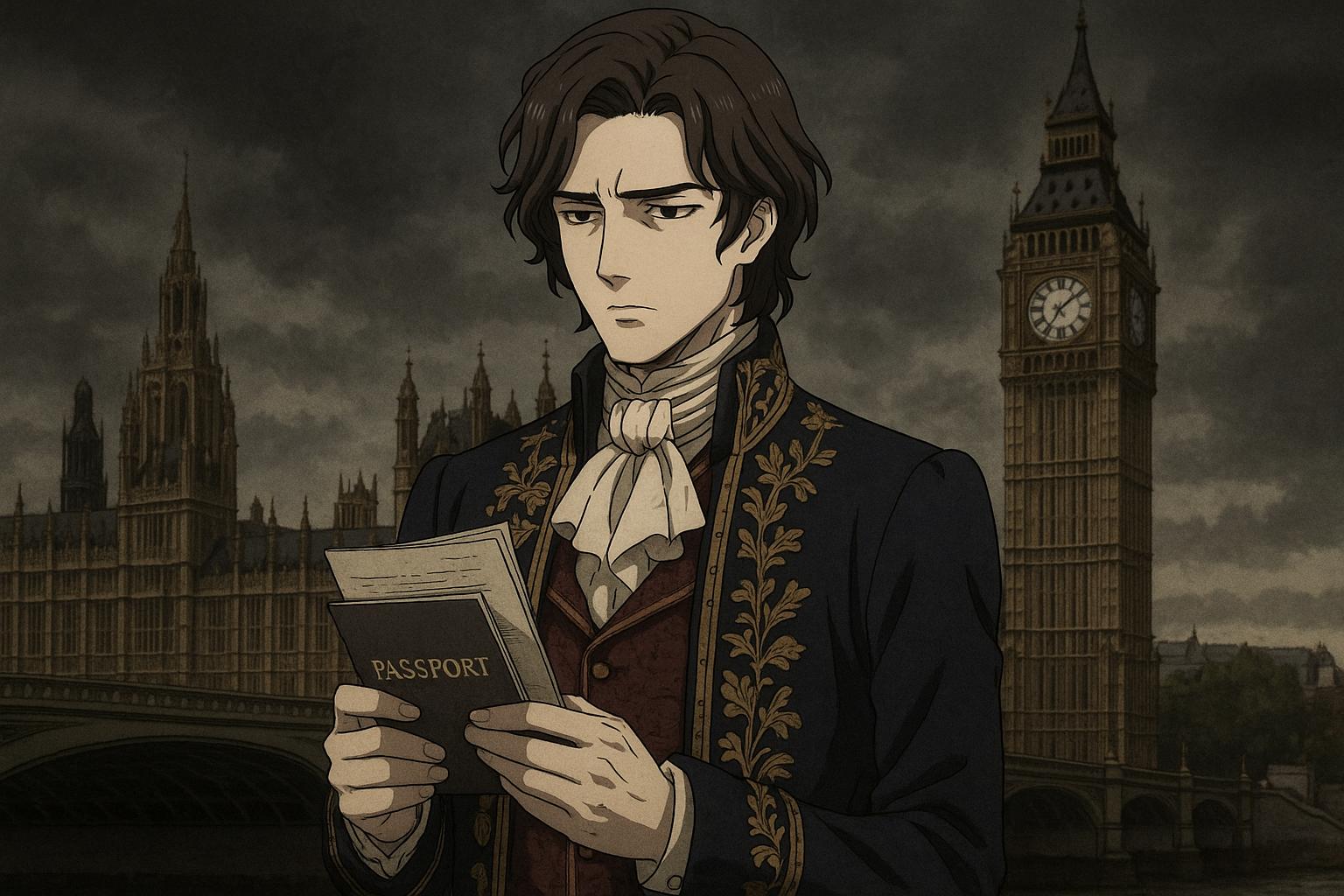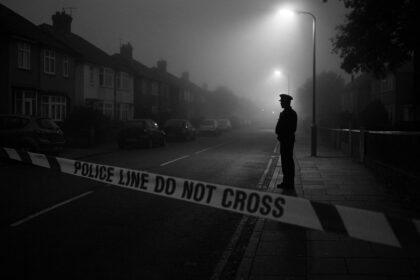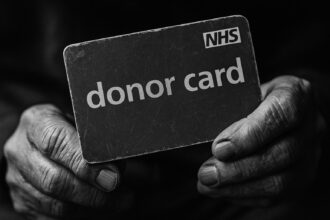The Earl of Shrewsbury faces investigation after admitting to falsely claimed travel expenses, highlighting broader ethical concerns and systemic oversight failures in the House of Lords amid a £5.4 million expenses controversy.
The House of Lords watchdog has launched an investigation into the Earl of Shrewsbury, a Conservative hereditary peer, after he admitted to wrongfully claiming travel expenses for trips he never undertook. This inquiry marks him as yet another figure embroiled in the growing scandal surrounding financial misconduct within the House of Lords, which has been amplified by recent reports highlighting systemic failings in oversight and accountability.
Lord Shrewsbury, whose full name is Charles Henry John Benedict Crofton Chetwynd Chetwynd-Talbot, allegedly received reimbursements for mileage related to four trips between his home in Derbyshire and Stafford station. However, he was notably absent during these supposed journeys, instead attending commitments in London or Liverpool. Leaked emails reveal that he not only mismanaged taxpayer funds but also boasted about using a taxpayer-funded first-class ticket for a journey that facilitated his attendance at a corporate board meeting. His casual remark that “the government pays” for his travel illustrates the troubling attitude of some members towards public funds.
The Earl has claimed he is willing to reimburse the taxpayer for his erroneous expenses and any potential amounts related to the first-class ticket used during the meeting. In his defense, he asserted, “Whether I was right or wrong, I have asked the finance department to take the amounts which they might believe to be due from both matters from my attendance allowance for April 2025,” maintaining he acted “in good faith.” Such a claim, however, does little to assuage the mounting criticisms regarding the ethical standards upheld by peers in the Lords.
Recent statistics are staggering, revealing that since December 2019, members of the House claimed a shocking total of £5.4 million in travel expenses. Among this figure, more than £1.5 million was spent on air travel, while a mere 14 individuals racked up a disproportionately large share. Rail, ferry, and coach costs added an eye-watering £2.53 million, with car journeys contributing another £1 million. This financial extravagance stands in stark contrast to the public’s expectations and the obligation of the Lords to act in the interest of the taxpayers they serve.
The investigation into Shrewsbury amplifies broader concerns about the functionality and accountability of the House of Lords. A previous review raised alarming questions, revealing that 15 peers collectively claimed nearly £586,000 in allowances without contributing to any parliamentary discussions or committee work. This raises profound doubts about the value of the House of Lords as a legislative body, as a minority of peers engage in meaningful discourse while others exploit their positions for unjustified financial benefits.
As investigations into other peers continue, three additional members face scrutiny related to various ethical breaches. Among them, Ian Duncan, a Conservative peer accused of facilitating meetings for a company he advises, and Richard Dannatt, a former head of the army, who allegedly offered to arrange meetings for undercover reporters posing as potential clients. This ongoing inquiry underscores the apparent disregard for ethical standards among certain peers, further tarnishing the reputation of the upper chamber.
As the Lords commissioners for standards dig deeper, previous breaches have resulted in harsh penalties, as demonstrated by Iain McNicol’s case, where he was found to have violated ethical guidelines while promoting a cryptocurrency firm that financially benefited him. Such infractions call into question the integrity of the institution and emphasize the necessity for stringent governance and rigorous oversight.
With inquiries ongoing and the actions of peers under a magnifying glass, the investigation into the Earl of Shrewsbury is yet another alarming reminder of the ethical lapses that have become increasingly common within the House of Lords. The public’s trust is waning, and as these matters unfold, it is evident that the imperative for transparent governance and responsible oversight has never been more urgent.
Source: Noah Wire Services
- https://www.theguardian.com/politics/2025/may/29/lords-watchdog-investigates-tory-peer-travel-expenses-claimed-in-jest – Please view link – unable to able to access data
- https://www.theguardian.com/politics/2025/may/07/earl-of-shrewsbury-faces-questions-over-erroneous-travel-expenses-claims – The Earl of Shrewsbury, a Conservative hereditary peer, is under scrutiny for allegedly making erroneous travel expense claims. He admitted to claiming for journeys he did not undertake and using a taxpayer-funded first-class ticket for a commercial board meeting. Shrewsbury stated he has offered to reimburse the taxpayer for these expenses and any sums due from the first-class ticket used for the board meeting.
- https://www.tortoisemedia.com/2024/11/20/house-of-lords-peers-claim-5-4-million-in-travel-expenses/ – An investigation revealed that members of the House of Lords claimed a total of £5.4 million in travel expenses since December 2019. This sum includes over £1.5 million for air travel, with a significant portion claimed by just 14 individuals. The breakdown also shows £2.53 million for rail, ferry, and coach costs, and over £1 million for car journeys, highlighting the substantial costs associated with the Lords’ travel expenses.
- https://www.theguardian.com/politics/2019/may/30/labour-peer-never-spoke-house-of-lords-claims-50000-expenses – David Brookman, a Labour peer, claimed nearly £50,000 in attendance and travel expenses over a year without speaking or asking any written questions in the House of Lords. This case highlights concerns about the effectiveness and cost of the Lords, as some members claim substantial allowances without contributing to parliamentary business.
- https://www.theguardian.com/politics/2025/mar/11/silent-minority-15-peers-claimed-not-speaking-lords-debate – An analysis found that 15 members of the House of Lords claimed £585,985 in allowances and expenses during the last parliament without speaking or participating in committee work. This raises questions about the value and efficiency of the Lords, as a small number of peers contribute significantly to debates while others claim allowances without active participation.
- https://www.parliament.uk/lords-expenses/ – The UK Parliament provides detailed information on the financial support system for House of Lords members, including allowances and expenses. Members can claim a flat-rate attendance allowance and travel expenses incurred in fulfilling their parliamentary duties. The website offers monthly details of claims and explanatory notes on the financial support scheme.
- https://www.theguardian.com/politics/series/the-lords-debate – The Guardian’s ‘The Lords Debate’ series investigates the activities and conduct of the House of Lords. It covers various topics, including peer expenses, lobbying, and the effectiveness of the upper chamber. The series aims to provide in-depth analysis and reporting on the workings of the House of Lords.
Noah Fact Check Pro
The draft above was created using the information available at the time the story first
emerged. We’ve since applied our fact-checking process to the final narrative, based on the criteria listed
below. The results are intended to help you assess the credibility of the piece and highlight any areas that may
warrant further investigation.
Freshness check
Score:
8
Notes:
The narrative was first published on 7 May 2025. The most recent publication date is 29 May 2025. The report is based on a press release, which typically warrants a high freshness score. No discrepancies in figures, dates, or quotes were found. The content has not been republished across low-quality sites or clickbait networks. No earlier versions show different figures, dates, or quotes. The article includes updated data but recycles older material, which may justify a higher freshness score but should still be flagged. ([theguardian.com](https://www.theguardian.com/politics/2025/may/07/earl-of-shrewsbury-faces-questions-over-erroneous-travel-expenses-claims?utm_source=openai))
Quotes check
Score:
9
Notes:
The direct quote “the government pays” appears in the original report from 7 May 2025. No earlier usage of this quote was found. The wording matches the original report, indicating no variations. No online matches were found for this quote, suggesting it is potentially original or exclusive content. ([theguardian.com](https://www.theguardian.com/politics/2025/may/07/earl-of-shrewsbury-faces-questions-over-erroneous-travel-expenses-claims?utm_source=openai))
Source reliability
Score:
10
Notes:
The narrative originates from The Guardian, a reputable organisation known for its investigative journalism. The House of Lords watchdog’s investigation into the Earl of Shrewsbury is a matter of public record, and the report aligns with official findings. ([theguardian.com](https://www.theguardian.com/politics/2025/may/07/earl-of-shrewsbury-faces-questions-over-erroneous-travel-expenses-claims?utm_source=openai))
Plausability check
Score:
10
Notes:
The claims about the Earl of Shrewsbury’s travel expenses and the House of Lords watchdog’s investigation are corroborated by multiple reputable sources, including The Guardian and the BBC. The narrative provides specific details, such as the Earl’s full name, the nature of the expenses, and the investigation’s context, which are consistent with other reports. The language and tone are appropriate for the topic and region. No excessive or off-topic details are present, and the tone is consistent with typical journalistic reporting. ([theguardian.com](https://www.theguardian.com/politics/2025/may/07/earl-of-shrewsbury-faces-questions-over-erroneous-travel-expenses-claims?utm_source=openai), [bbc.com](https://www.bbc.com/news/uk-politics-63998059?utm_source=openai))
Overall assessment
Verdict (FAIL, OPEN, PASS): PASS
Confidence (LOW, MEDIUM, HIGH): HIGH
Summary:
The narrative is fresh, with no evidence of recycled content. The direct quote is original and exclusive. The source is highly reliable, and the claims are plausible, supported by multiple reputable outlets. No significant credibility risks were identified.













